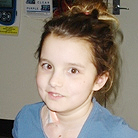Medication

Introduction
All transplant patients require the administration of numerous medications to prevent rejection and maintain a state of well-being. It is important that you understand the effect of each drug and its possible side effects.
The drugs that are prescribed are required for a number of reasons, including:
- to suppress the body's immune system
- to reduce blood pressure
- to increase urine output
- to lower cholesterol and triglyceride levels
- to replace minerals lacking in the body
The nursing staff will help with your education about medications before you discharge from hospital and the transplant clinic nursing staff will again ensure a thorough knowledge of these drugs after discharge.
General guidelines
- It is important that you understand the name , dose and time you should take your medications and the actions and side effects of every drug you are taking.
- Never, under any circumstances, stop taking any of the medications without specific instructions from a member of the transplant team.
- Store medications in a cool dry place away from heat, direct sunlight and out of the reach of children.
- Never miss a dose. If you do forget a dose you may take it if no more than 6 hours have elapsed. Never double the dose.
- Report any vomiting or sustained diarrhea to the transplant team.
- Do not take any 'over the counter' medicines, for example, cough medicines or herbal products without first consulting the transplant unit.
- Many other drugs interfere with the level of immunosuppressants in your blood. If your local doctor needs to prescribe a new medication please ask him to contact the transplant unit.
Common immunosuppressive drugs
Immnuosuppressive drugs are given to suppress the body's immune system to prevent you from rejecting the transplanted organ. Some common types of these are:
Cyclosporin A (Neoral)
This drug suppresses the immune cells in the blood. The dosage depends on your body weight, the level of the drug in your blood, the time after transplant and the degree of side effects you are experiencing. If for some reason you are unable to take the dose at the usual time, take it when you can, but not more than six hours later. It is important that you take your medications correctly and avoid missing doses.
The side effects generally occur in the early stages following transplantation, when the doses of drugs are highest. They should decrease or disappear as your dosage is reduced. You may notice:
- Increase in hair growth on face and body – barely visible hairs become thicker and more visible. Hair may be shaved, bleached, waxed or removed with cream.
- Tremors – mild shaking of the hands may occur.
- Increase in gum tissue and gum tenderness – ensure correct dental hygiene and regular visits to the dentist.
- Stomach problems – nausea and vomiting may occur.
- Decrease in kidney function – this is most common when dosage is highest and reverses with decrease in dosage.
- Liver dysfunction – some abnormality in the function of the liver. This usually reverses with a decrease in dosage and is monitored by blood tests.
- High blood pressure – high blood pressure occurs in 80% of transplant patients and is treated with 'antihypertensive' medication.
- High cholesterol level in the blood – your cholesterol level may rise when you are taking Cyclosporin. If this cannot be controlled with diet, you may be prescribed medication.
Other less common side effects may include:
- skin rashes
- a burning sensation in the feet and hands
- headaches and leg cramps
Azathopprine (Imuran)
This decreases the number of white cells in the blood. The white blood cells fight off the viruses and bacteria that cause infection assisting in the body's immune response. Your body weight and the level of white cells in your blood, which are monitored by blood tests, determine the dose.
Prednisolone and methyl prednisolone (corticosteroids)
Methyl Prednisolone and Prednisolone are different forms of the same drug (note where the term 'prednisolone' is used here it refers to both forms of the drug). Prednisolone is very similar in composition to the agent cortisone that is naturally produced by the body. Prednisolone suppresses or weakens the immune system and helps to control rejection.
There may be times when you are asked to increase the dose, when rejection is present. It is important to understand and follow the instructions carefully. Intravenous methyl prednisolone is given for a short time after transplantation and during episodes of rejection.
Generally the prednisolone doses are high early post-transplant and reduce over the first year. Most people will experience some side effects in the first six months. Side effects may include:
- redistribution of body fat to the face and upper neck. You will notice that your face will become fuller and rounder
- some muscle weakness and wasting
- thinning of the skin, making it more fragile and slower to heal. Any breaks in the skin will be sensitive to the sun so it is imperative you use a sunscreen
- osteoporosis or decrease in bone density, especially if you are inactive for long periods. This can result in bone fractures. You will have a bone density measurement taken before your transplant
- increased blood sugar, which can be controlled by a change in diet or may require medication to control
- some eye problems – visual problems are not common but if you do have a problem, inform your doctor
- retention of salt and water
- mood swings – this effect is most seen when large doses are being given. If this effect occurs, you may for example, be nervous or you may find it more difficult to sleep
- increase in appetite. – often associated with the major problem of weight gain and potential obesity
- acne
Not all side effects occur in all people taking prednisolone. They will tend to improve dramatically once the daily dose can be safely reduced.
Other immunosuppressive drugs
There are other immunosuppresive drugs that you may be prescribed dependent on your individual circumstances, such as Tacrolimus (Prograf), Mycophenolate (Cellcept), Everolimus and Sirolimus (Rapamycin).
Other drugs
A typical post-transplant regime of medication can include many other drugs, all designed to help the body cope better with the presence of the new heart and/or lungs and the immunosuppresive medication and its side effects, such as:
- Amphotericin Lozenges (Fungilin)
- Cotrimoxazole (Bactrim, Bactrim DS, Septrin, Septrin Forte, Resprim Forte)
- Ranitidine (Zantac, Rani)
- Antihypertensive Drugs (Ramipril)
- Magnesium Supplements (Magmin, Biomag)
- Calcium supplements (Caltrate)
< Prev – Post transplantNext – Driving and returning to work >




